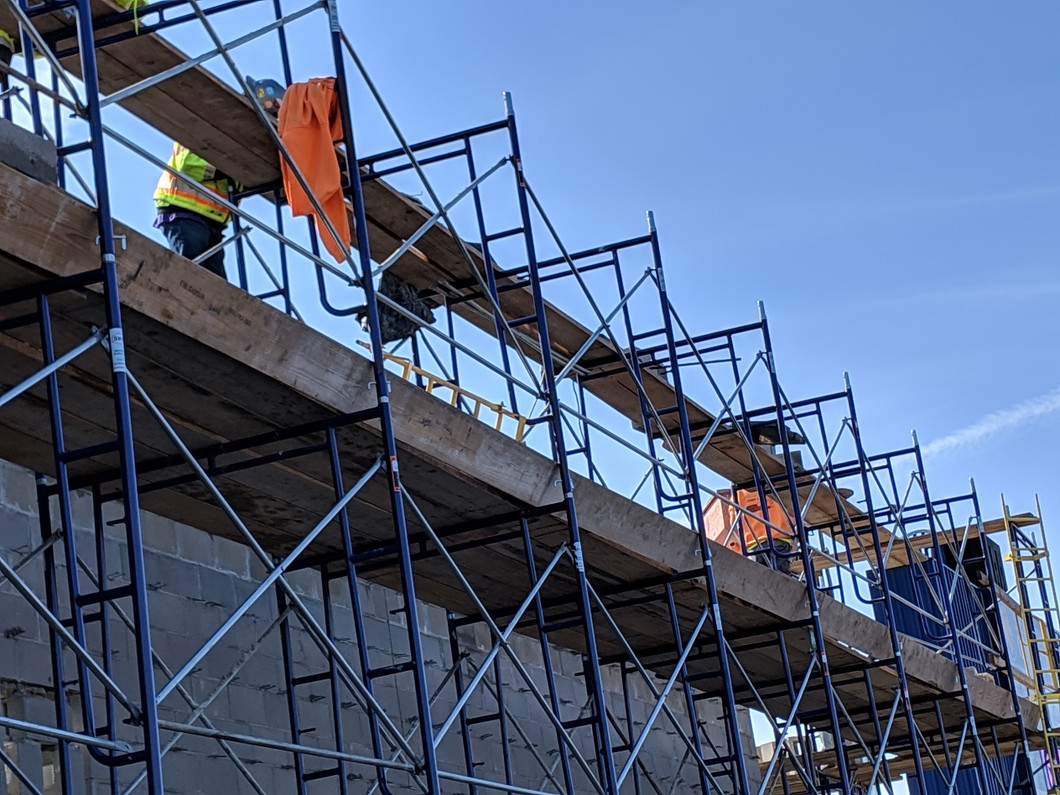To Rent or To Buy Scaffolding: A Construction Conundrum
Whether you're a seasoned contractor or a DIY enthusiast, scaffolding is an essential piece of equipment for any construction project. And when it comes to acquiring it, you're faced with the age-old dilemma: to rent or to buy? It's a question that causes endless debate among construction professionals, and it's no wonder why. Both options have their pros and cons, and it can be difficult to determine which is the best choice for your particular situation. That's why we've put together this post to help you navigate this construction conundrum. So, grab a cup of coffee and let's dive in!
The Pros and Cons of Renting Scaffolding
All in all, the decision to rent or buy scaffolding ultimately depends on the specific needs of your project. If your project is short-term and you don't anticipate needing scaffolding again anytime soon, renting may be the best option for you. However, if you're embarking on a long-term project that requires the use of scaffolding for an extended period of time, purchasing scaffolding may be the more cost-effective choice in the long run. Of course, there are factors beyond just duration to consider, such as the type of scaffolding needed and your budget. That being said, with the right research and consideration, you're sure to make the best decision for your project and get that scaffolding up in no time!
When it comes to deciding whether to rent or buy scaffolding for your project, renting can often be a more cost-effective and practical option. Buying scaffolding outright requires a significant investment of money, which may not be feasible for everyone, especially those on a tight budget. Renting scaffolding can save you a considerable amount of money, while still providing you with high-quality equipment when you need it. Not only that, but renting scaffolding means you won't have to worry about the hassle of storing and maintaining the equipment once your project is complete. So if you're looking for a more budget-friendly option, renting scaffolding is definitely worth considering!
The Pros and Cons of Buying Scaffolding
When undertaking a construction project, one question that arises is whether to rent or buy scaffolding. While renting may seem more cost-effective, it's important to weigh the long-term benefits against the initial expenses. Purchasing your own scaffolding may require a pricey upfront investment, but it gives you more control over your work schedule and frees you from the potential inconvenience of scheduling availability. Plus, if you're someone who will be using scaffolding frequently in the future, buying your own will save you money in the long run. Additionally, purchasing scaffolding allows you to customize it to your specific needs, whereas rental options may not always have the exact specifications required for your project. So, the next time you're considering a construction project, ask yourself if renting scaffolding is worth it in the long run, or if investing in your own equipment is the way to go.
If you're someone who's never handled scaffolding before, you might think renting it is the best option. But If you frequently use scaffolding or have multiple projects lined up that requires it, purchasing your own could save you a significant amount of money in the long run. Buying scaffolding can also lead to discounted prices for bulk orders, making it a more financially savvy choice than renting for each project. Plus, owning your own scaffolding means never having to worry about availability or scheduling conflicts with rental companies. So why not invest in your own set and give yourself the flexibility and freedom to tackle any project that comes your way?
n the end, whether to rent or buy scaffolding comes down to your individual needs and circumstances. If you're a frequent user of scaffolding, investing in your own equipment may make sense. However, renting might be the more cost-effective solution if you only need it for a single project or on an occasional basis. Ultimately, the decision is up to you. But by taking into account the factors we've outlined in this post, you can make an informed choice that will help you save time, money, and hassle on your next construction project. Cheers to a successful and safe build!
Recent Posts
-
Top 5 Myths About Scaffolding – Busted!
Don’t Let These Common Misconceptions Slow Your Project Down At Southwest Scaffolding, we hear …Jun 30th 2025 -
What Happens to Old Scaffolding?
A Peek Into Recycling, Reuse, and Creative Upcycling Ideas Introduction: Scaffolding doesn’t l …Jun 28th 2025 -
Why Locking Pins and Couplers Matter More Than You Think
When most people think about scaffolding, they picture the platforms, frames, and guardrails—b …Jun 16th 2025




